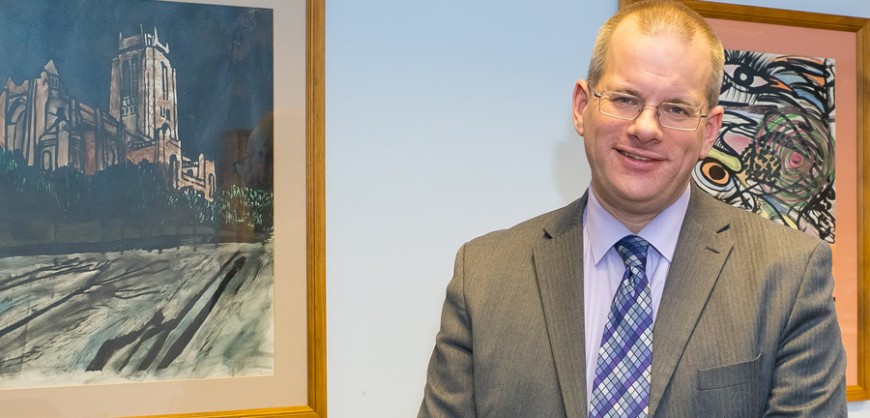Headteacher of St Margaret’s Academy reacts to lockdown 3.0

This week, Educate caught up with Mr Stephen Brierley, headteacher of St Margaret’s Church of England Academy in Aigburth, Liverpool. Here’s what he said about the new lockdown and the changes to exams:
As I write, Gavin Williamson has just announced that this summer’s GCSE, AS- and A-level exams have been cancelled. Instead, teachers will (again) be providing centre-assessed grades.
To be honest, I have mixed feelings about the announcement.
On the one hand, it was probably inevitable, given schools’ latest partial closure, and given ongoing concerns about the safety of having hundreds of students in a confined space for a few hours.
But because it was inevitable, I was hoping that ‘Plan B’ might have been a bit more developed. As it is, many students, parents, teachers and leaders will now have a lot more (perfectly legitimate) questions about how things are going to work out. To anyone reading who has such questions – you have my sympathy; I have those questions too; we’re all in the same boat!
So what should happen now? I’d like to offer two observations.
Firstly: exams aren’t perfect. There’s an element of chance in what questions come up. Students are not always in the best place to do their exams (I remember once working with a Year 11 student who had witnessed a road traffic accident on their way to an important GCSE exam). Marking exam scripts is not a completely precise science. In many ways, to misquote Churchill: “Exams are the worst form of assessment – except for all the others”. Last summer certainly gave me cause to reflect that exams have their advantages as well as their disadvantages!
So whatever is put in place now, I’d like to think that there could be some way, even if only at school level, for students to be given some sort of opportunity to demonstrate what they’ve learned. The outcomes of any such exercise would need to be interpreted very carefully, of course – some students have endured prolonged periods of absence from school, through no fault of their own – but such an exercise could add an extra element of objectivity to mitigate any risk of the process being tainted by subjectivity. Maybe it won’t be possible to do that this year. But I’d like to think it would be considered.
Secondly: we need to be very clear what this year’s GCSE grades tell us. I was a bit concerned to hear some talk, after Gavin Williamson’s announcement, that students should receive grades that reflect their efforts. GCSE grades should reflect learning, not effort. I put in a considerable amount of effort when I ride my bike – but that doesn’t mean I’m a particularly fast rider – I’m certainly not! Granted, for most people, learning requires significant effort; but the effort itself isn’t enough – you’ve got to make the effort in a way that ensures the learning sticks. How best that happens is a gloriously individual thing. For me, silly little mnemonics helped me remember my ‘O’-level History content (that ages me!); for others, spider diagrams or flash cards may work better. Working out what’s best for each individual is one of the many joys of teaching! But let’s not kid ourselves that those who’ve tried hardest should get the top grades: hard work has to be effective for it to count. Those who have learnt the most, who’ve committed it to their long-term memories, and who can apply it – they’re the students who should get the top grades. The two aren’t quite the same.
So those are my two requests. But however things pan out, our young people need – indeed, we all need – rapid clarity on what’s going to happen, and a fair process that enables everyone to make the most of a truly horrid situation. And of course, we need good leadership of the process too: we saw how important that is last summer.
Above all, we desperately need to get this right. The future of our young people is too important to get wrong.
Gavin: over to you.
Written by Stephen Brierley, St Margaret’s Church of England Academy.




